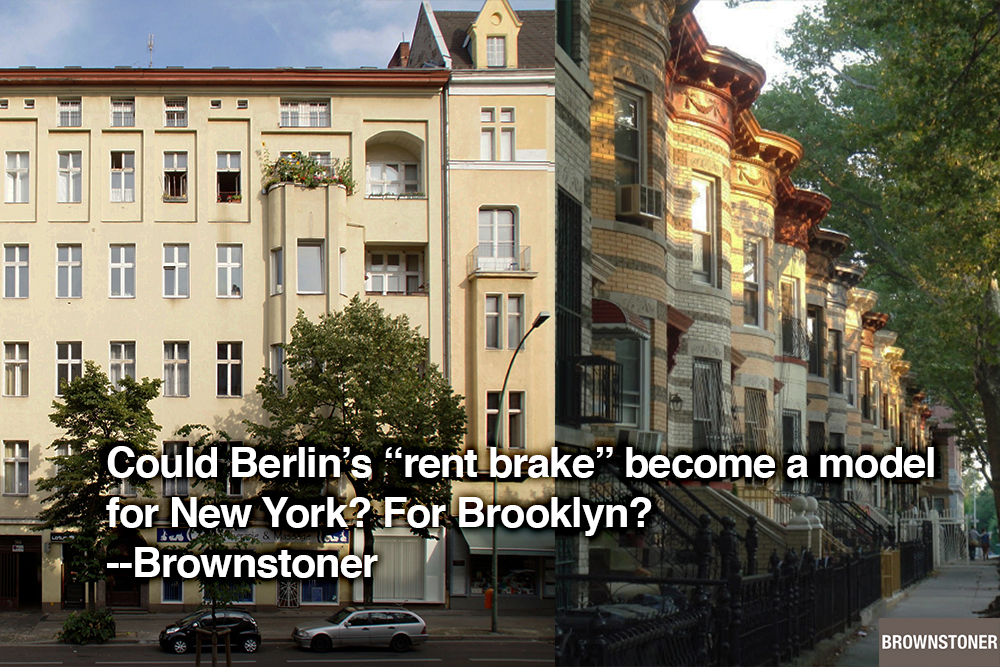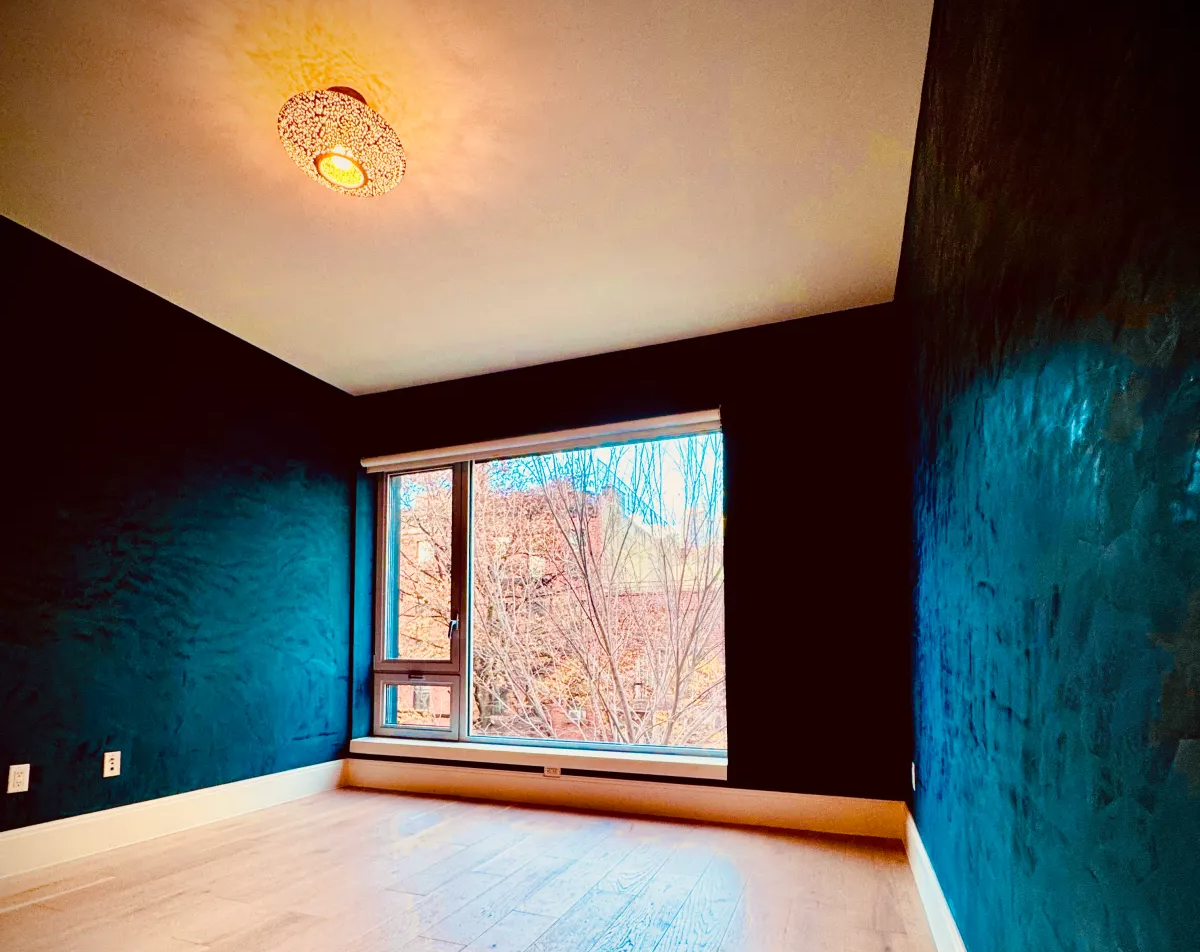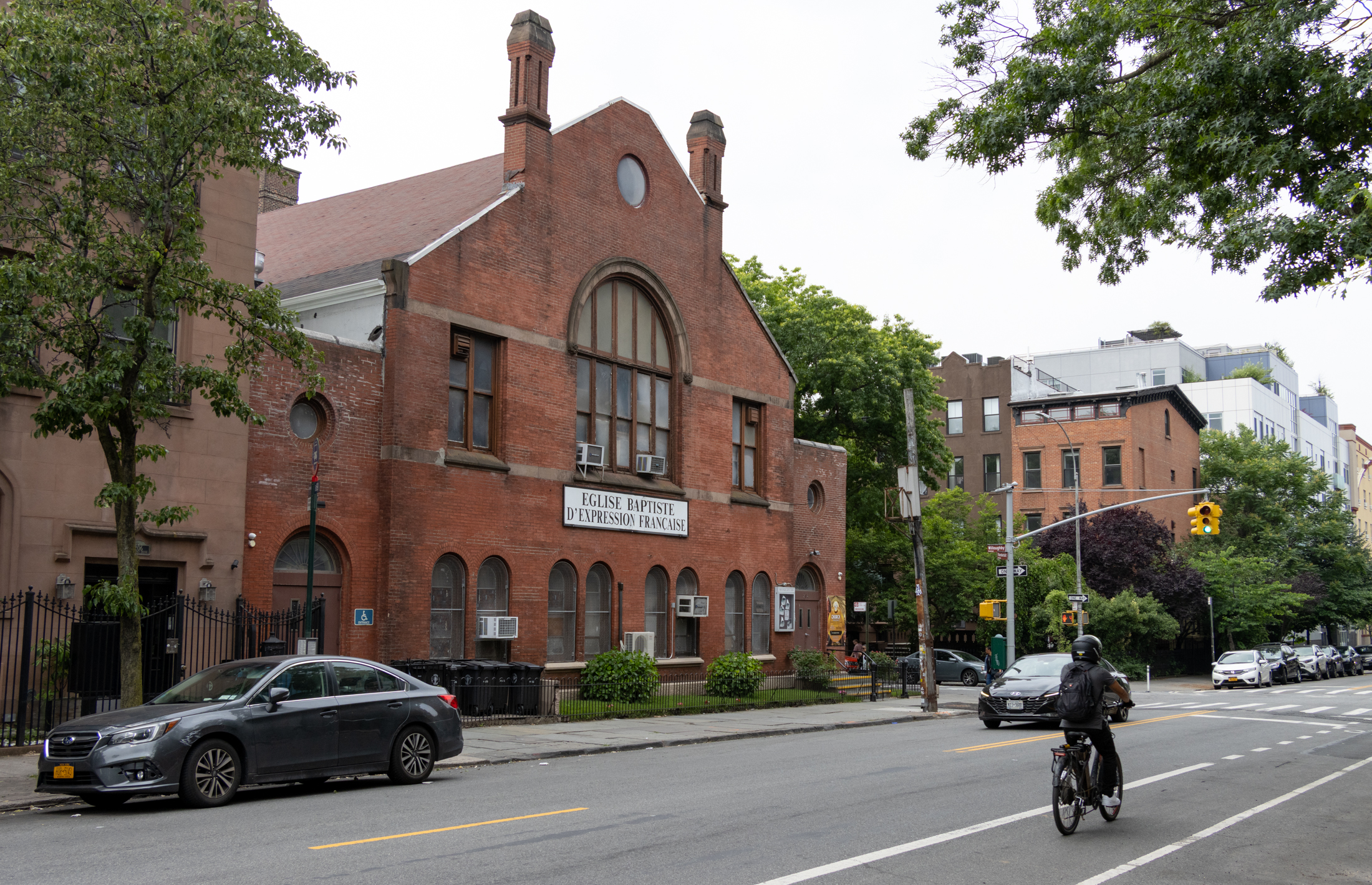Could Berlin's Rent Regulations Become a Model for New York City? Brooklyn Too?
Rents in Berlin — Europe’s coolest city? — have risen so rapidly over the past several years, that the German capital passed new legislation in June to rein in the market. In the past month, the mietpreisbremse or “rental price brake” appears to have worked: Rents in the German capital decreased by 3.1 percent. Rents in Brooklyn — the world’s…

Rents in Berlin — Europe’s coolest city? — have risen so rapidly over the past several years, that the German capital passed new legislation in June to rein in the market. In the past month, the mietpreisbremse or “rental price brake” appears to have worked: Rents in the German capital decreased by 3.1 percent.
Rents in Brooklyn — the world’s coolest city — have similarly soared. New Yorkers in general are keeping an eye on Berlin’s experiment, wondering: Could the mietpreisbremse become a model for New York? For Brooklyn?

Brooklyn-born Etsy also has a location in Berlin, shown above. Photo by Etsy
Brooklyn and Berlin aren’t as dissimilar as you might think. Berlin is the fifth largest city in Europe. Brooklyn is the fourth largest city in the U.S. (when considered separatly from NYC). Both cities have a majority of renters over home owners — at least 64 percent of Berliners rent, as do 71 percent of Brooklynites. Both are increasingly wealthy. Both are hip.
And both Berlin and Brooklyn are struggling to find the right way to increase home values and rents without entirely pricing out middle income residents.
Reiner Wild, managing director of the Berlin Tenants’ Association, was quoted by “The Guardian” as saying, “We don’t want a situation like in London or Paris… that people with low income have to live in the further-out districts of the city.”

Between 2013 and 2014, average rents in Berlin rose by 9 percent, encouraging lower-income residents to move outside of high-demand neighborhoods. The rent brake was instituted, in part, to help combat this migration.
Mietpreisbremse works by limiting the rent that landlords can charge in new leases. The rent can be no more than 10 percent above the median rent-per-square-meter of its district. Basically, the law is a rent cap determined on a neighborhood-by-neighborhood basis.
A district’s rent-per-square-foot is based on census data assessed by an oversight board. New construction is excluded from the 10 percent limit.

In Brooklyn, if an apartment is not rent regulated, a landlord can charge whatever a tenant agrees to pay. As of 2011, about 44 percent of Brooklyn apartments were rent stabilized (meaning that rent increases for those apartments are controlled by the Rent Guidelines Board).
In a historic move in late June, the RGB froze rents on one-year leases throughout the city’s stabilized rental stock.
However, the freeze doesn’t take neighborhood differences into account, and leaves rents for the other half of the housing stock relatively unregulated. A Berlin-esque rent brake could limit the rapid rent increases that are pricing medium and lower-income residents out of certain Brooklyn neighborhoods.
Check out Berlin’s innovative new rent control laws & encouraging Twitter response from hot-market cities worldwide. https://t.co/7LOgPpGJEQ
— Brad Lander (@bradlander) July 10, 2015
But not everyone is so keen on the mietpreisbremse. In April, The Economist warned that Berlin’s rent brake is likely to deter renovations, new construction, and potentially give rise to a black market.
If you’re interested in reading more on these topics, check out:
Rent Regulation Coverage [Brownstoner]
Brad Lander Coverage [Brownstoner]
Did Berlin Just Crack the Code to Keeping Rents Affordable? [Brick Underground]
Berlin’s New Rent Control Laws Are Already Working [CityLab]
Images via Wikimedia





The Bottom Line is: if private landlords are not taking any subsides of any kind: Real Estate tax abatement, rent subsides etc. No Government Agency should be telling them what they can charge their tenants for rent.
And the reality is that many rents, in many neighborhoods are actually going down and sitting on the market for much longer. But the media stats do not show that because they are distorted by the new development numbers, that are also distorted to justify the mortgages to financiers and the hedge fund investors.
These are scary times, that do not need more Government interference or the only Landlords will be Wall St.
this is a very bad comparison. The US in general is a free economy unlike in Europe where regulations are very tight in all aspect of life, be it real estate, education, employment etc…in the U.S., such regulation would generate many lawsuits and I am sure the city wouldn’t dare to go there. In addition, you already have 44% of rental units rent regulated, do you really think there is a need to regulate the entire market? Doubt it.
You don’t like it here…move to Russia. Love it or leave it.
cool – lets make real estate really “Free market” – get rid of all tax incentives for owning properties and this ridiculous artificially low interest rate environment propping up overpriced assets
post – you seem like a nice landlord – again – my only point is that gov’t should not be incentivizing any sort of behavior OR interfering in what someone should charge. i have no beef with any landlords i’ve had – i’ve never gotten a huge increase – hell i’ve gotten more decreases than increases over my 10 years bouncing around. when the government meddles in markets – shit gets distorted – hell – look at what’s happened to the cost of higher education since the gov’t decided to back 100k loans taken out by 17 year olds with no income/collateral. i don’t think anything Berlin-esque will get passed here – i think we’ll continue with that status quo of 80/20 new construction and things will eventually stabilize.
DH you are so right. If these landlord clowns want a free market so bad, they should stop begging for tax credits, abatementa, land etc.!
Good for you. I did not state being in favor of Berlin type rent regulation. i think all market distortions should be eliminated – including rent reg as it currently exists – tax abatements for developers and buyers – income credits for propery owners and fed Rates propping up an asset class due for a correction. you can’t be against regulation bc ” free market ” and like the status quo. And rather presumptuous that I cannot afford to buy or whatever.
good job greedy landlords – resort to ad hominem attacks rather than formulating a substantive argument! suckaz!!!